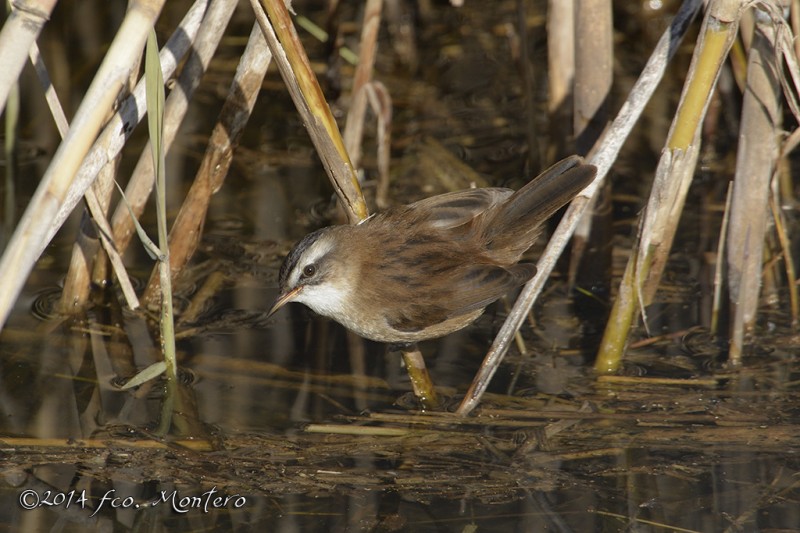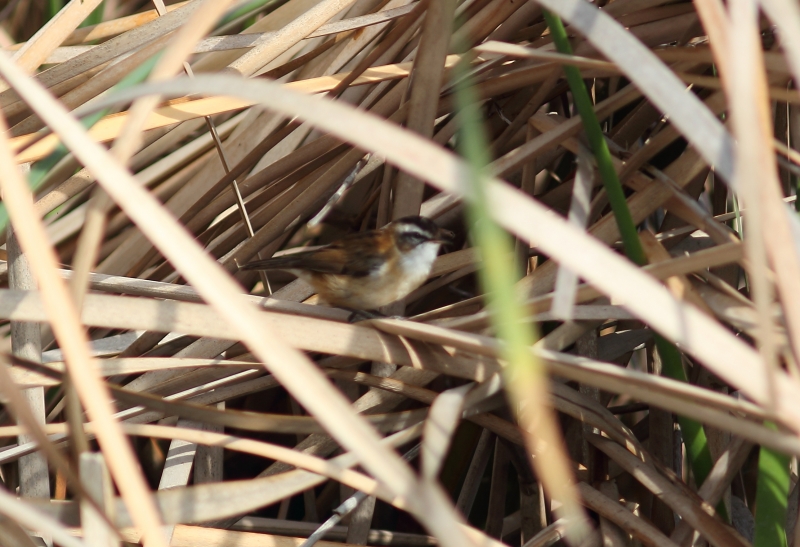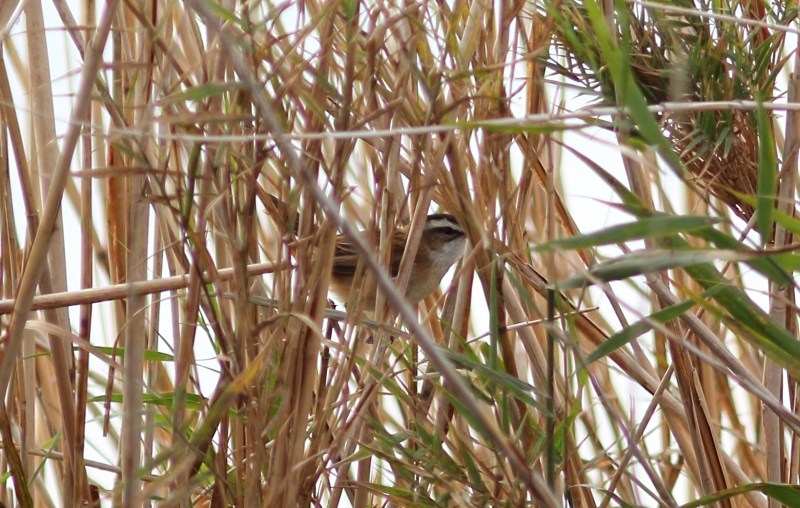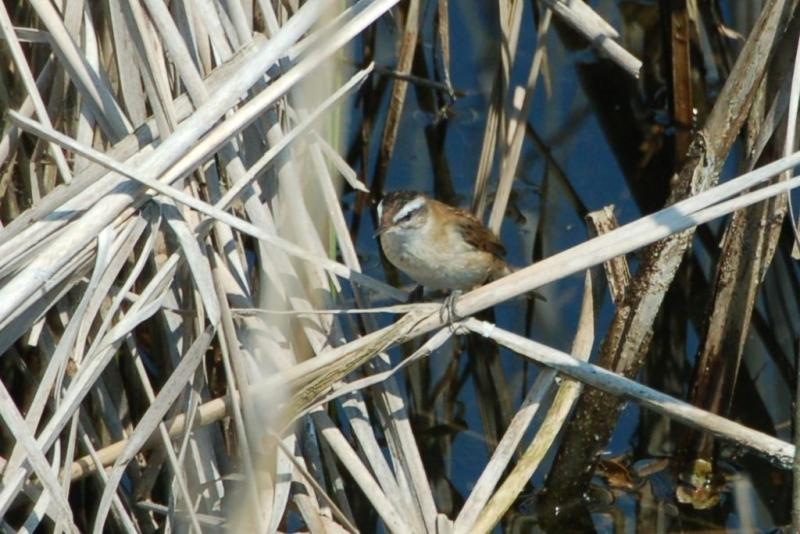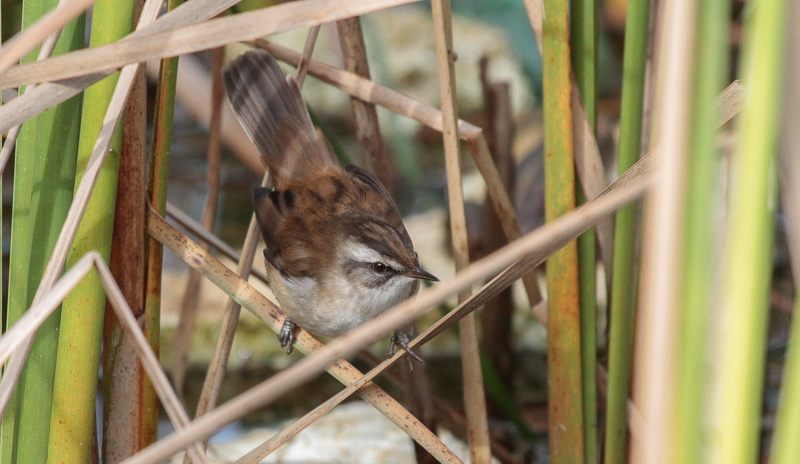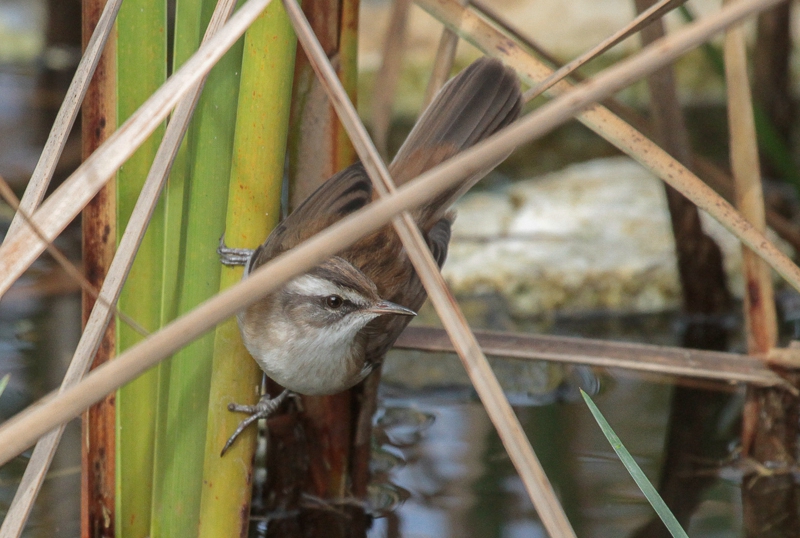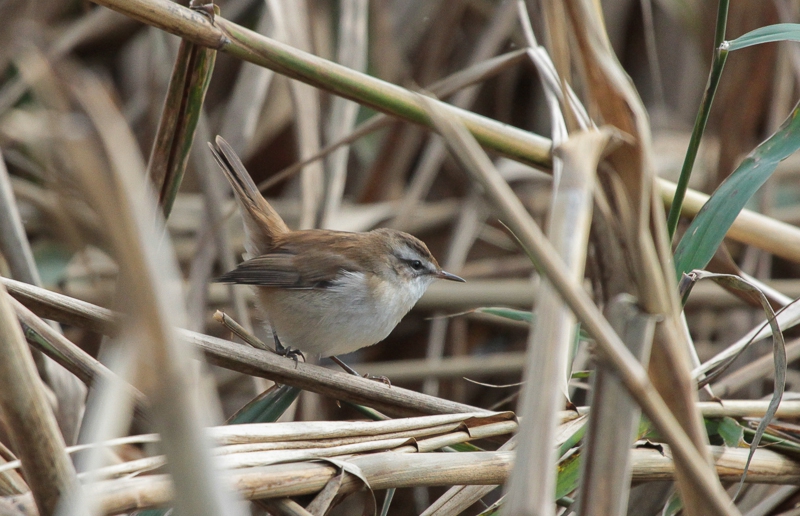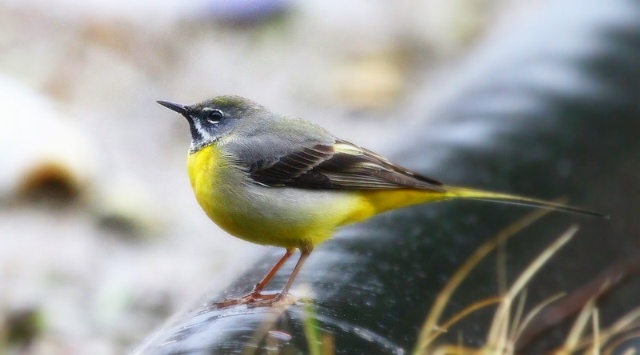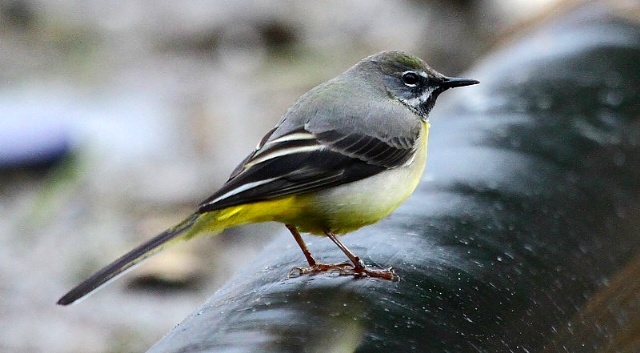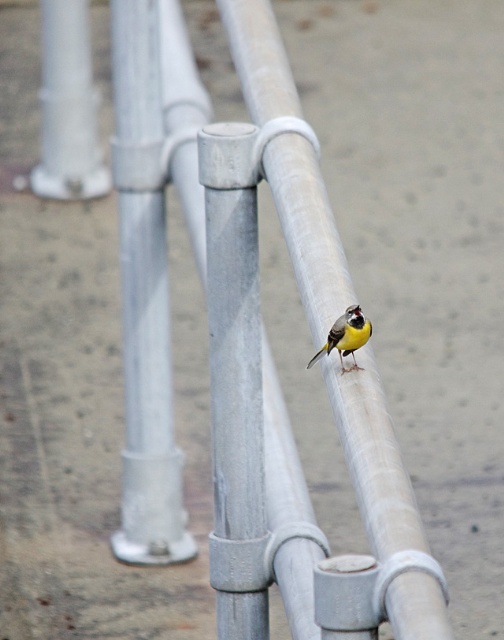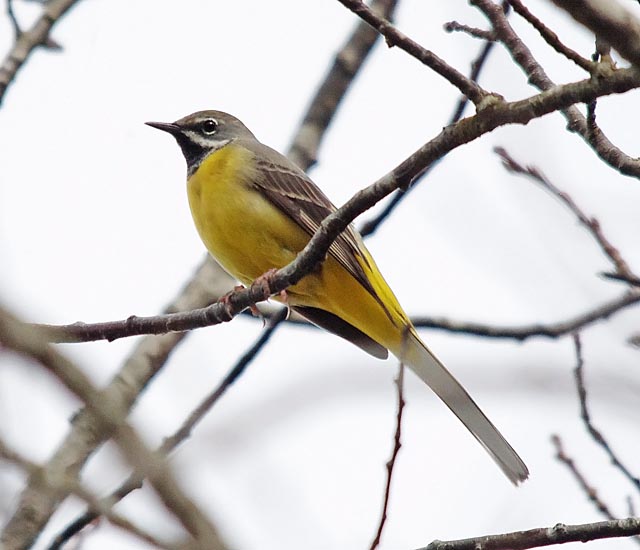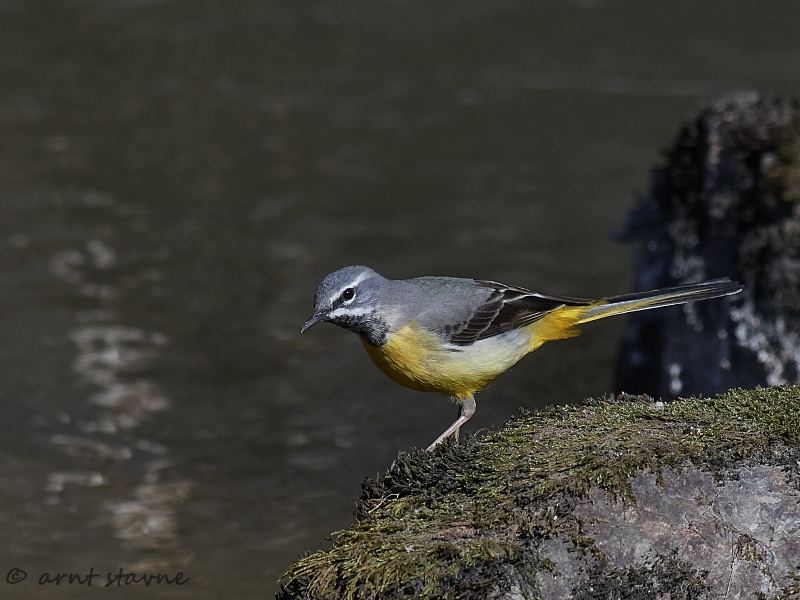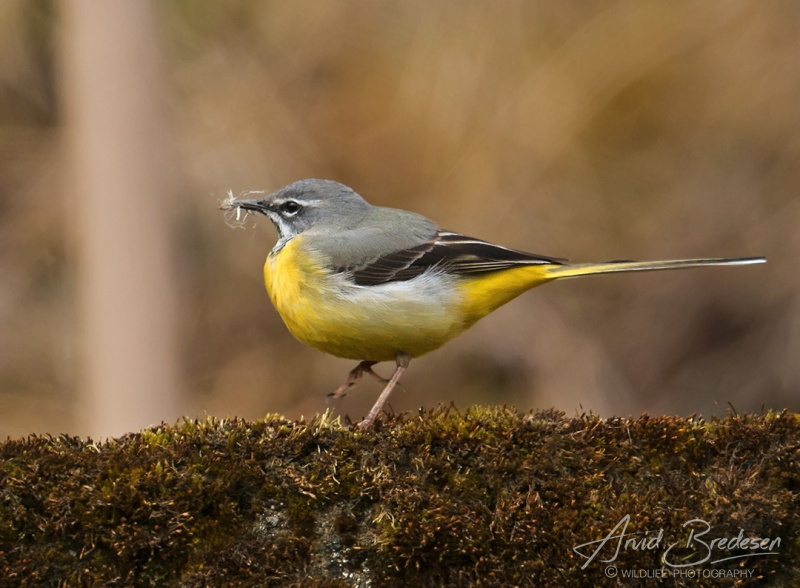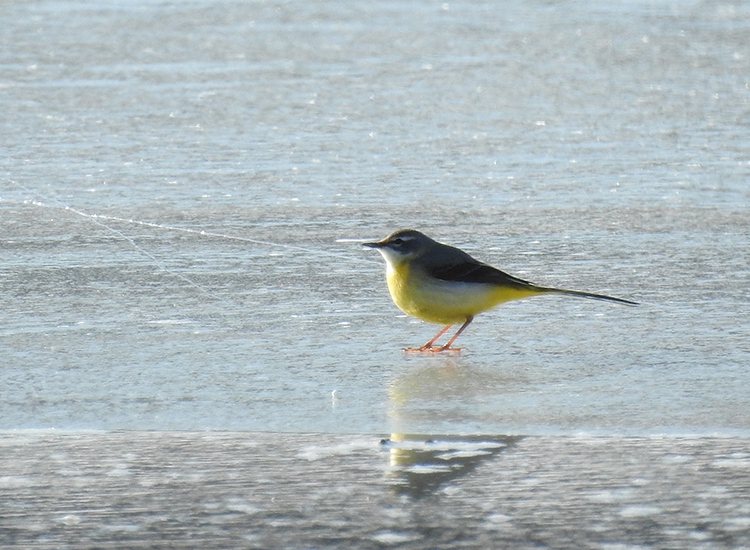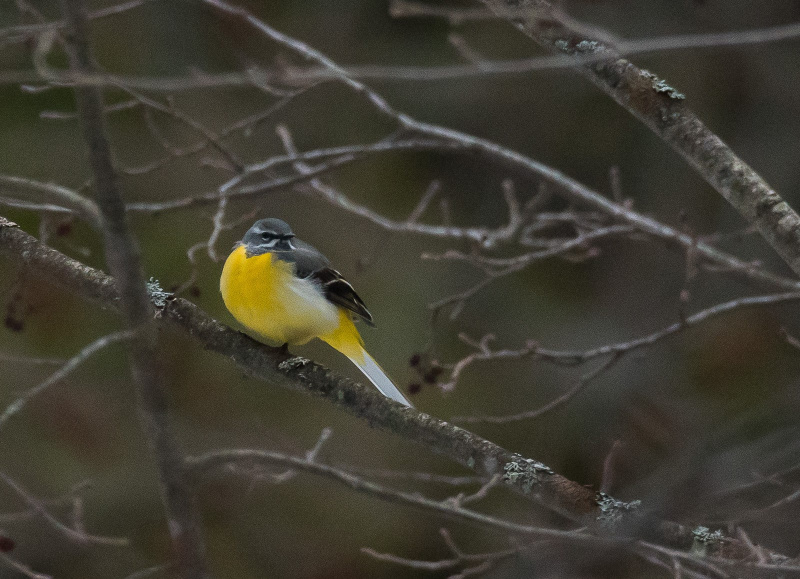Moustached Warbler (Acrocephalus melanopogon)
Grey Wagtail (Motacilla cinerea)
Small and restless species easily confused with Sedge Warbler, Acrocephalus schoenobaenus, but showing both plumage and structural differences. Plumage differs from A. schoenobaenus in; broad, white supercilium ending without narrowing, dark crown (usually appears black), pure white throat, grey ear-coverts, dark legs and warm-rufous flanks, rump and neck. Facial markings recalling firecrest. Very short primary projection and longer, more evenly rounded tail recalling Wren when raised. Bill thinner than A. schoenobaenus. Skulky behaviour, forages low in vegetation, on ground or near water surface. Some variation in both size and plumage between western and eastern subspecies.
Sound:Contact call a dry "trrrt", similar to corresponding call of Sedge Warbler. Song most resembling that of Reed Warbler (A, scirpaceus), but often includes diagnostic (unique among congeners), pure-sounding note sequence resembling crescendo of Common Nightingale (L. megarhynchos), before launching into typical Acrocephalus sounding song. This latter type can be sustained for some time without the diagnostic sequence and is more difficult to distinguish from A. scirpaceus. Note faster tempo and more variation.
Diagnostic song:
Distribution:
Xeno-canto: map
Ecology:Birdlife ecology
Links:
Observation.org Latest observations
Image search Flickr NB! May give other species
CCCC-photo:Radovan Václav, Licence,Link.
Elegant and very long-tailed wagtail. Vent always bright yellow in all plumages. Legs pinkish flesh-coloured, not black. Wings with single white bar, visible both from below and above. Male with black throat in summer. Constantly wags tail, often in a more horizontal posture than congeners. Flight more attenuated and more bounding than in other wagtails. Attached to water and streams.
Sound:Contact call short, metallic and with a clipped ending. Often disyllabic, "tzeet-tzeet", with each syllable more separated than in White Wagtail, and timbre more "dirty". Song simple but variable. Often starts with the contact call, followed by short melodic phrases. Sometimes with more elaborate song-flight like White Wagtail.
Contact call, flight call:
Distribution:
Wikipedia: map (se also Xeno-canto below)
Ecology:Birdlife ecology
Links:
Observation.org Latest observations
Image search Flickr NB! May give other species
CC
 English
English Albanian
Albanian
 Armenian
Armenian
 Bulgarian
Bulgarian
 Catalan
Catalan
 Croatian
Croatian
 Czech
Czech
 Danish
Danish
 Dutch
Dutch
 Finnish
Finnish
 French
French
 Georgian
Georgian
 German
German
 Greek
Greek
 Hungarian
Hungarian
 Italian
Italian
 Latvian
Latvian
 Lithuanian
Lithuanian
 Macedonian
Macedonian
 Norwegian
Norwegian
 Polish
Polish
 Portuguese
Portuguese
 Romanian
Romanian
 Russian
Russian
 Sami : Lule sami
Sami : Lule sami
 Sami : North sami
Sami : North sami
 Sami : South sami
Sami : South sami
 Scientific names
Scientific names
 Serbian
Serbian
 Spanish
Spanish
 Swedish
Swedish
 Ukrainian
Ukrainian


